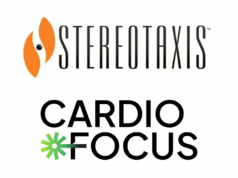
A first of its kind study has shown that patients with atrial fibrillation who undergo catheter ablation have a lower stroke risk than patients who do not undergo the procedure independent of CHADS2 score. The study also found that the stroke risk of atrial fibrillation patients treated with ablation was similar to patients with no history of atrial fibrillation over time. The study was published in the September issue of HeartRhythm.
Thomas Jared Bunch (Intermountain Heart Institute, Intermountain Medical Center, Murray, USA) and others wrote: “Stroke risk after atrial fibrillation ablation appears to be favourably affected; however, it is largely unknown whether the benefit extends to all stroke CHADS2 risk profiles of atrial fibrillation patients.” Therefore, they set out to determine if ablation of atrial fibrillation reduces stroke rates in all risk profiles of atrial fibrillation patients.” Therefore, they set out to determine if ablation of atrial fibrillation reduces stroke rates in all risk groups.
The study included a total of 37,908 patients (mean age 65.0 ± 13 years) representing three different groups: patients with atrial fibrillation who had undergone ablation (4,212), patients with atrial fibrillation who did not undergo ablation (16,848), and patients without a history of atrial fibrillation (16,848). Patients were enrolled from the large, ongoing Intermountain Atrial Fibrillation Study Registry and were followed for at least three years. The patients were matched according to the CHADS2 risk profile, which is based on risk according to congestive heart failure, hypertension, age, diabetes, and stroke symptoms.
A total of 1296 (3.4%) patients had a stroke over the follow-up period. Across all risk profiles and ages, atrial fibrillation patients with ablation had a lower long-term risk of stroke compared to patients without ablation. There was a significantly higher rate in those patients with atrial fibrillation who did not undergo ablation (590 patients,) compared to those with atrial fibrillation who underwent ablation (61 patients) and those with no history of atrial fibrillation (242 patients). Furthermore, “We found that the stroke risk over time of atrial fibrillation patients treated with ablation was similar to patients with no history of atrial fibrillation,” wrote Bunch et al. Previously, the authors noted, “we found that atrial fibrillation increases risk of stroke across all CHADS2 risk profiles compared to patients with no history of atrial fibrillation (Crandall MA, et al, Pacing Clin Electrophysiology 2009;32:981-986).”
Bunch et al concluded: “These long-term data coupled with the observation that risks are similar to patients without atrial fibrillation suggest that ablation treatment favourably affects stroke risk in atrial fibrillation.”









